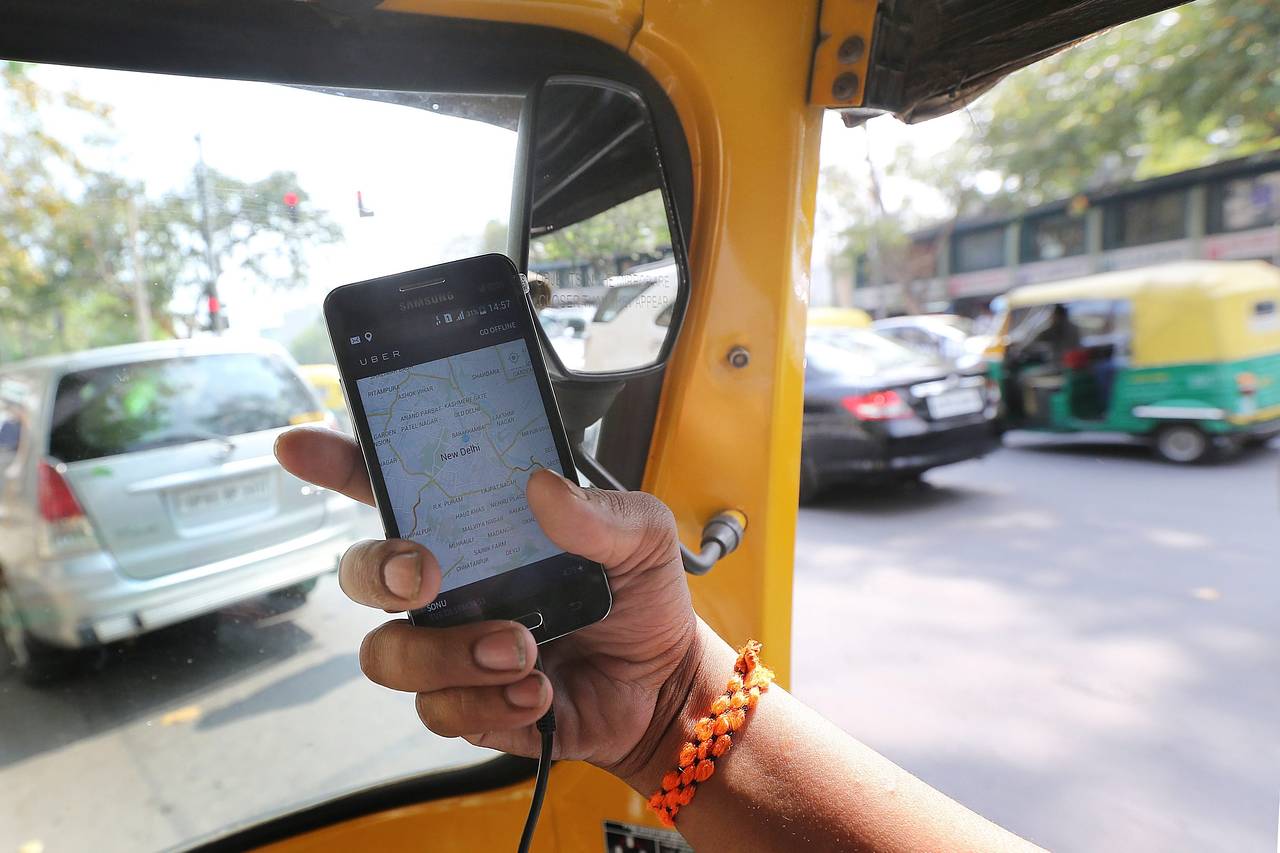
NEW DELHI—Uber Technologies Inc. on Monday promised to invest $50 million over the next five years in India’s technology hub Hyderabad.
The investment in the capital of India’s newest state Telangana will create “thousands of jobs and entrepreneurship opportunities,” Uber said in a statement Monday.
The company signed a memorandum of understanding with the state government, saying it plans to establish a support facility for its ride-hailing app in the city, staffed by hundreds of new employees. A spokesman for Uber said the facility would function as a “helpdesk” for the company. Once the facility is open, India will have Uber’s second-largest employee pool after the U.S.
“This is an outstanding example of what can be achieved when the private and public sector work together with the best interest of local communities,” Siddharth Shanker, who heads Uber’s operations in Hyderabad, said in a statement.
The proposed investment comes as the company faces regulatory uncertainty in the city. Uber isn’t currently authorized to operate its ride-hailing app in Hyderabad, said B. Venkateswarlu, a joint commissioner at Telangana’s transport department. The state authority issued an advisory to passengers earlier this year to avoid using services like Uber, which “didn’t fit the regulatory framework,” Mr. Venkateswarlu said.
On Monday, Uber said it was working with state authorities in Telangana to come up with “a new regulatory framework” in the next four weeks for taxi aggregators like itself.
India is the company’s second-biggest market after the U.S. in terms of the number of cities in which it operates, and last week Uber introduced its services in seven new cities in the South Asian country. The San Francisco-based company currently operates in 18 cities in India with more than 100 employees. Drivers in India work under contract for the company.
Uber has in the past said it would offer “its full support” to state authorities as well as the federal government in India “to work towards a long-term solution” to regulatory roadblocks it faces in the country.
Uber’s most aggressive clash with regulators in India has been in capital Delhi where its services were banned last year after a woman accused a driver she had booked through the ride-hailing app of rape. The driver, who is standing trial, has pleaded innocent in court. Uber continues to operate in Delhi despite the ban.
Uber, Ola and other unlicensed transport aggregators in Delhi were ordered to apply for radio-dispatched taxi licenses and in June, regulators rejected applications for these licenses.
At the time, Gagan Bhatia, who heads Delhi’s Uber operations, said the company “welcomed the opportunity to engage in constructive dialogue” with the government in the capital.
Uber began operating in Hyderabad in January 2014, three months after it first launched in India in the southern city of Bangalore. Hyderabad is the only city in the world where Uber offers the option to pay in cash for taxis. Its auto-rickshaw booking service in Delhi also uses only cash.